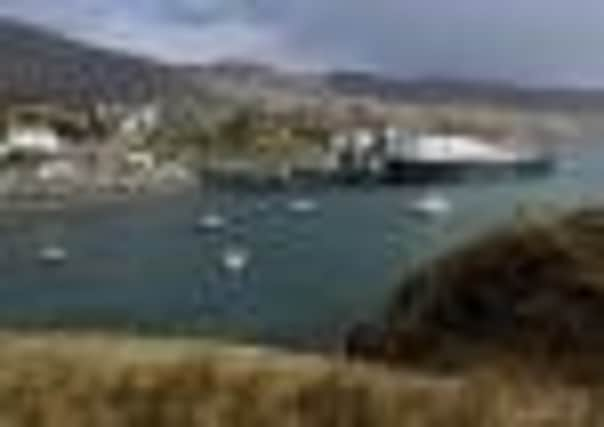Scrapping of Outer Hebrides cheaper transport scheme ‘should be delayed’


The Scottish Government was urged to enforce a moratorium on any fare increases after the withdrawal of road equivalent tariff (RET) which sets fares at a level similar to the cost of travelling by road.
The SNP administration is setting up a transitional arrangement covering the Western Isles, Coll and Tiree and will conduct a six-month survey of costs faced by island hauliers.
Advertisement
Hide AdAdvertisement
Hide AdLabour MSP Elaine Murray, leading a debate at Holyrood, said the proposal is causing dismay among islanders and is opposed by Western Isles SNP MP Angus MacNeil.
Ms Murray said: “Those of us who represent rural areas know well that prices of many items, including fuel, is higher in more remote towns and villages than in the central belt. We are told transportation costs contributed to those higher prices.
“Therefore it must be perfectly feasible that anything that reduces the cost of transportation will help reduce prices.”
Ms Murray wants a socio-economic study to assess the impact that increased costs will have on households, local employers and hauliers.
Scottish Government proposals to end the scheme in April 2012 will leave some hauliers with 135 per cent increases on ferry fares, according to Labour.
Transport Minister Keith Brown said RET for larger hauliers made up around 40 per cent of the cost of the overall scheme.
But evidence from a study of the pilot showed only seven per cent of hauliers passed the “full benefits” to consumers, he added.
Mr Brown said: “We’ve been clear from the outset that we recognise the removal of RET for commercial vehicles in the Western Isles, Coll and Tiree will have an impact because they’re the only ones coming from that position currently.
Advertisement
Hide AdAdvertisement
Hide Ad“That’s why we’ve come up with the transitional scheme where they’ll be, despite what’s been said by Elaine Murray, no increases of more than 50 per cent and most will be substantially less than that.”